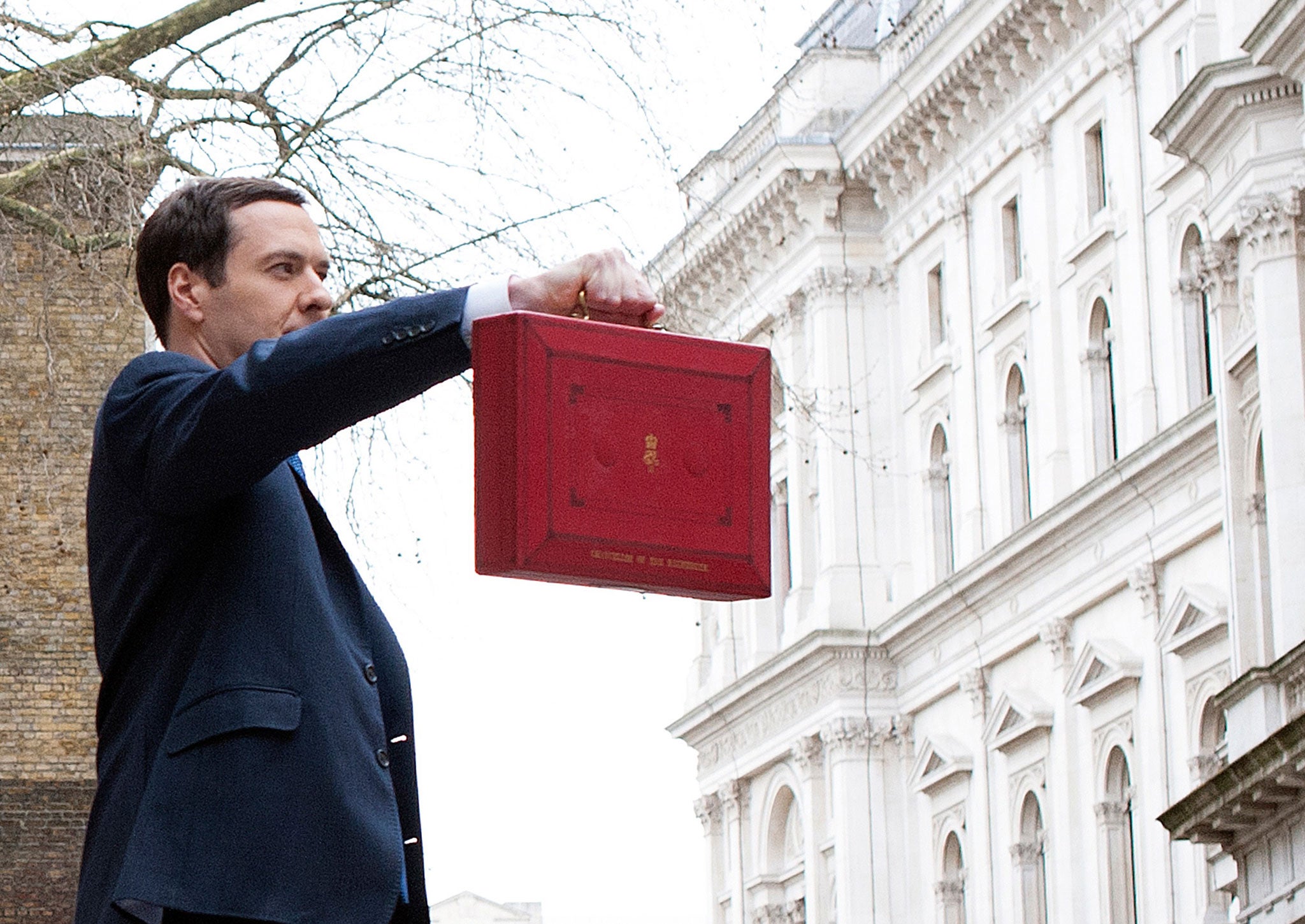Budget 2014: The Chancellor's mind is on politics as well as economics
But I would be surprised if the Budget alone greatly changes the electoral mood


It is a familiar cliché to describe George Osborne as highly political, but every Chancellor considers the politics as well as the economics. Combining the two is the artistry required of the second most difficult job in government. The more relevant question is how good a political and economic artist is this particular Chancellor?
Not surprisingly every word Mr Osborne delivered was with the next election in mind. Polling day is only a year or so away. The new pensioner bond, paying interest rates of up to 4 per cent, will be available from January, the start of the election year. Of course this is no coincidence. Timing apart, the policy is also a substantial reform. While affluent savers might be helped, some on welfare are being hit.
Mr Osborne’s welfare cap is popular and framed partly to present Labour with a trap. Already those close to the Chancellor are asking how Labour will pay for its proposed scrapping of the bedroom tax if it supports the overall cap. Mr Osborne has also set laid another, wider trap. He will legislate mischievously later this year for his very tough spending targets planned for the next parliament. Will Labour support them? This is a very big dilemma for the Labour leadership and one that it has yet to resolve. If Messrs Miliband and Balls back Mr Osborne they will have absolutely no wriggle room if they were to win, even to provide extra cash for the NHS. If they oppose the plans they know they risk falling into the old “tax and spend” traps that Mr Osborne hopes to play.
But there are some very big questions that arise from the Budget relating to spending. It is easy for a Chancellor to set overall spending targets and much harder to specify where the cuts will fall. The NHS is a good example. Where will the axe land in the next parliament if the NHS is compelled to implement real terms cuts of around 10 per cent? In relation to welfare, Mr Osborne sets a cap that can be revised only with parliamentary approval. The level of transparency, accountability and scrutiny are worthwhile innovations. Yet we have no details how he plans to meet the additional billions of cuts in welfare that he outlined in general terms at the beginning of the year to the dismay of the Welfare Secretary, Iain Duncan Smith. Even Mr Osborne’s pensions’ reforms announced today do little to address the most-fundamental challenge facing the next government: How to meet the costly demands of a growing elderly population that is living longer? Overall spending cuts are popular, specific ones often are not. Mr Osborne proposes another parliament of so far vaguely defined real terms cuts.
Fiscally neutral budgets tend to be quickly forgotten or remembered for the wrong reasons as far as Chancellors are concerned. With no spare cash, Chancellors still feel the need to make waves that subsequently almost sweep them away. I detect no new waves threatening to swamp Mr Osborne in his latest more or less fiscally neutral budget. Nor will this one be forgotten. The proposed pension changes and other reforms for savers are as radical as some of the policies unveiled by the Coalition in its recklessly revolutionary opening few months. But I would be surprised if the Budget alone greatly changes the electoral mood. There is a deep ambiguity to the figures unveiled in the budget. Growth is higher than forecast a year ago, but not as high as was predicted at the start of the parliament. The deficit is falling but will not be wiped out in this parliament, as was originally planned. Mr Osborne attempts an extremely delicate balancing act of seeking vindication while arguing there is a long way to go. As he puts it, the job is not yet done. The highly political Chancellor tends to unveil Budgets that do not greatly change the political mood.
READ MORE:
BUDGET 2014: AT A GLANCE
PENSIONS AND SAVINGS: OSBORNE UNVEILS RADICAL REFORM
NATALIE BENNETT: THIS IS WHAT A TRULY PROGRESSIVE BUDGET WOULD LOOK LIKE
SEAN O'GRADY: THE CHANGES TO PENSIONS ARE REVOLUTIONARY
TOP BUDGET COMMENT FROM AROUND THE WEB
Join our commenting forum
Join thought-provoking conversations, follow other Independent readers and see their replies
Comments
Bookmark popover
Removed from bookmarks